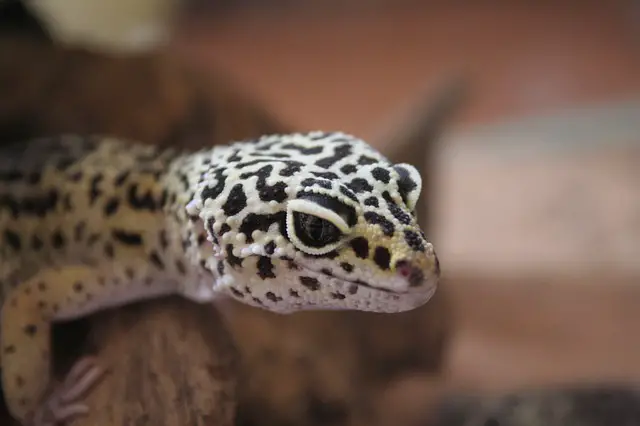The answer to this question is yes, a leopard gecko can be an emotional support animal. ESAs are becoming more and more popular, as people realize the benefits they provide. If you’re considering getting an ESA, it’s important to do your research and find out what type of animal would be best for you. In this blog post, we will discuss the benefits of having an emotional support animal, and we will also take a look at some of the most popular ESA animals.
Introduction
There’s no definitive answer, but it’s possible. Leopard geckos are generally gentle and docile, and they can form bonds with their owners. They’re also quiet and non-threatening, which makes them less likely to cause stress or anxiety in people who have anxiety disorders or who are otherwise sensitive to loud noises or sudden movements.
If you think a leopard gecko could help you cope with your anxiety or depression, talk to your doctor or mental health professional about whether an emotional support animal would be right for you.
What is an emotional support animal?
Emotional support animals (ESAs) are companion animals that provide therapeutic benefits to their owners. Unlike service animals, which receive extensive training to perform specific tasks for their disabled owners, ESAs do not need to have any special training.
Typically, the only requirement for an animal to be designated as an ESA is a letter from a mental health professional stating that the animal provides emotional support that is beneficial to the individual’s mental health.
The Benefits of ESAs
There are many benefits of having an emotional support animal. One of the most significant benefits is that ESAs can provide companionship and unconditional love, which can be invaluable for people who are experiencing anxiety, depression, or other mental health conditions.
In addition, studies have shown that interacting with animals can help to reduce stress levels and improve overall mental well-being. For many people with mental health conditions, an emotional support animal can be a vital part of their treatment plan.
What types of animals make good ESAs
Emotional support animals (ESAs) provide companionship, support, and love to people who suffer from mental or emotional disorders. These animals can be of any species, but they must be specifically trained to perform certain tasks or behaviors that alleviate their owner’s symptoms.
Common ESAs include dogs, cats, rabbits, and birds. Some people also choose to register reptiles, rodents, or even amphibians as their emotional support animals.
One popular choice is the leopard gecko. These lizards make excellent ESAs because they are low-maintenance and easy to care for. They are also docile and gentle by nature, making them perfect for people who suffer from anxiety or fear.
In addition, leopard geckos are known to form strong bonds with their owners and can provide years of companionship and support. If you’re considering registering a leopard gecko as your emotional support animal, be sure to consult with your mental health professional first.
How do you get an emotional support animal and what kind of documentation is required?
Emotional support animals (ESAs) are dogs or other animals that provide comfort and support to people with mental or emotional disabilities. Unlike service animals, which are trained to perform specific tasks for their owners, ESAs do not require any special training. Any animal that provides companionship and emotional stability can qualify as an ESA.
To get an ESA, you will need a letter from a licensed mental health professional (LMHP) stating that you have a disability that would benefit from having an ESA.
The letter must be on the LMHP’s letterhead and dated within the past year. Once you have your letter, you can register your animal with a service like ESA Doctors. This will give you access to an online portal where you can manage your animal’s information and print out ID cards and pet insurance discounts.
You will also need to make sure that your housing situation allows for emotional support animals, as some landlords have breed or size restrictions. With the proper documentation in hand, an emotional support animal can provide invaluable companionship and support.
Taking care of your Leopard Gecko
When it comes to emotional support animals, leopard geckos make great candidates. Not only are they low-maintenance pets, but they are also gentle and docile by nature.
However, there are a few things you can do to help your leopard gecko feel comfortable and safe in its new role.
First, make sure to create a quiet and secluded space for your pet to retreat to when it feels overwhelming. This could be a small enclosure or even a cardboard box lined with bedding.
Secondly, handle your leopard gecko regularly so it becomes accustomed to being handled.
And finally, provide plenty of food and water so your pet always has access to the necessities.
By taking these steps, you can help your leopard gecko feel comfortable and safe in its new role as an emotional support animal.
Conclusion
While leopard geckos are not traditionally thought of as emotional support animals, there is no reason why they couldn’t fill this role. Leopard geckos are gentle creatures that enjoy being held and are generally very tame. They are also low-maintenance pets that don’t require a lot of care or attention. As long as their basic needs are met, leopard geckos can make excellent companions. In addition, leopard geckos are non-allergenic and unlikely to trigger any allergies in people with sensitivities. For these reasons, a leopard gecko could make a perfect emotional support animal.




